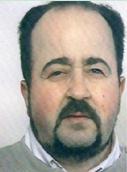


Biography: Abdou Djouadi is Professor of University of Nantes since 2002, he is doing his research in Institut des Matériaux Jean Rouxel of Nantes. He received his PhD in 1993 from University Paris XI (IEF). He worked eight years in ENSAM School of Engineer on the development of oxides and nitrides coatings and obtained his habilitation (HDR) in 2001 from University of Nancy. His current research interests include thin films and nanotubes synthesis by different plasma methods( DC and HiPIMS, PECVD, …). He is mainly interested by the development and use of new plasma processes and their application for thin films and nano-objects in micro and optoelectronic. A. Djouadi has authored or co-authored more than 110 international peer review publications and up to 150 communications in international conferences.
Since 1990, Prof. A. Djouadi has intensively studied aluminium and boron nitride thin films by several plasma methods which he also used for the synthesis of nano-compounds, nanotubes or nanofibers. Professeur Djouadi and colleagues successfully synthesized well crystallised AlN films and even epitaxial AlN films on AlGaN and epitaxial ZnO layer on AlN. Moreover, thanks to in situ diagnostics (OES, Mass spectrometry, …) they succeeded to synthesize such a difficult materials using HiPIMS. Prof. Djouadi published more than 110 papers in peer reviewed journals.
These researches were also in close connexion with industrial problems and in this frame Prof. Djouadi leaded several industrial contracts (BatsCap, ALCATEL-THALES, MHS, Béliers Associés, GLADU, Platit, PSA, …). He also leaded three European projects as CRAFT HOBS and KNIWOOD in connection with SME’s and TEMPUS MEDA program which was more academic. He is also a scientific responsible for Nantes University for the European project TIPS (2015-2018)
He was the coordinator of ANR HIPPOPP project (2008-2010), ANR PNano NanothermIC (2010-2012), ANR CREATIVEPI (2011-2012) and the scientific responsible for ANR Fichtre (2014-2017) and ANR SALSA (2015-2018).
Prof. A. Djouadi was also the French representative of European COST Action MP0804 involving up to 40 countries in the field of HiPIMS technique. He was in charge of the Workgroup V, HiPIMS deposition in reactive mode.
Speech Title: Use of plasma methods for synthesis of nanocomposites materials
Abstract: Thin films and nanotubes NTs undoubtedly play a central role in the present nanotechnology research. Continuous devices down-scaling leads progressively to complex assembly of very well defined micro and nano-sized structures. As a matter of fact, Carbon Nanotubes (CNTs) have become thus one of the most promising elementary brick for this kind of structure. CNTs based transistor, sensors, field emission devices, AFM tip or electromechanical actuators have already proven the ability to take advantage of its nanoscale properties for various applications [1-3].
So first, we may explore the capabilities of plasma enhanced chemical vapor deposition technique to grow vertically oriented single wall, double wall or multi walled carbon nanotubes (CNTs). The early stages of CNTs synthesis have been probed thanks to the control of plasma parameters and temperature as low as 380°C had been reached. Some applications of such nanostructures as sensors will also be presented and discussed
Second, trial have been done in order to replace ITO by other materials as graphene, carbon nanotubes but thanks to their low resistance (< 100 ) and high transparency AgNWs percolative networks appear a good solution. Nevertheless when silver nanowire electrodes conduct current at certain levels, the electrodes can fail. Nevertheless, thanks to plasma methods and encapsulation of such electrodes with transparent and thermal conductive material as AlN one can overcome this problem. First results show that it’s possible to heat such AgNWs/AlN matrix up to 250°C without losing the electrical conductivity of Ag nanowires.